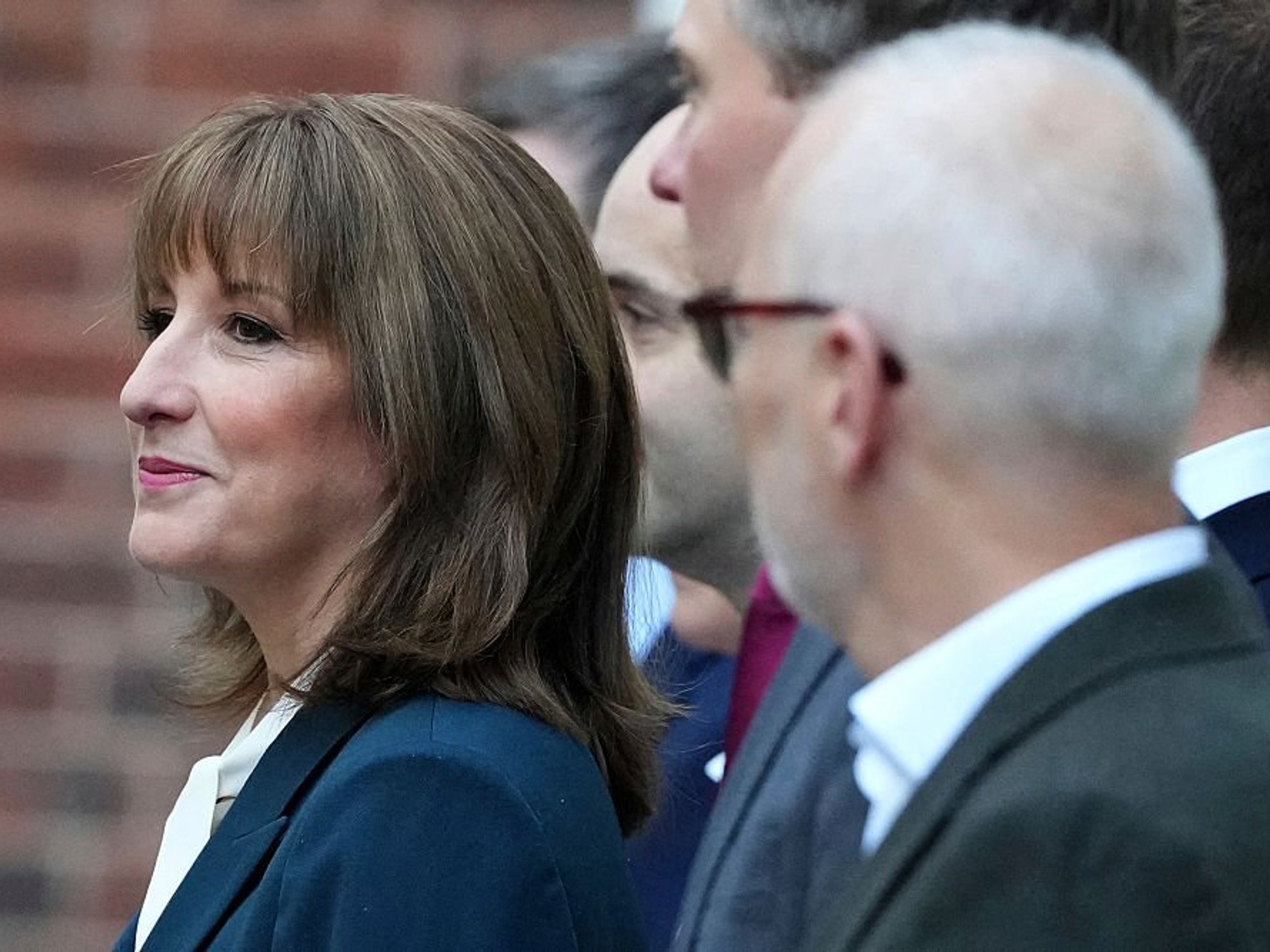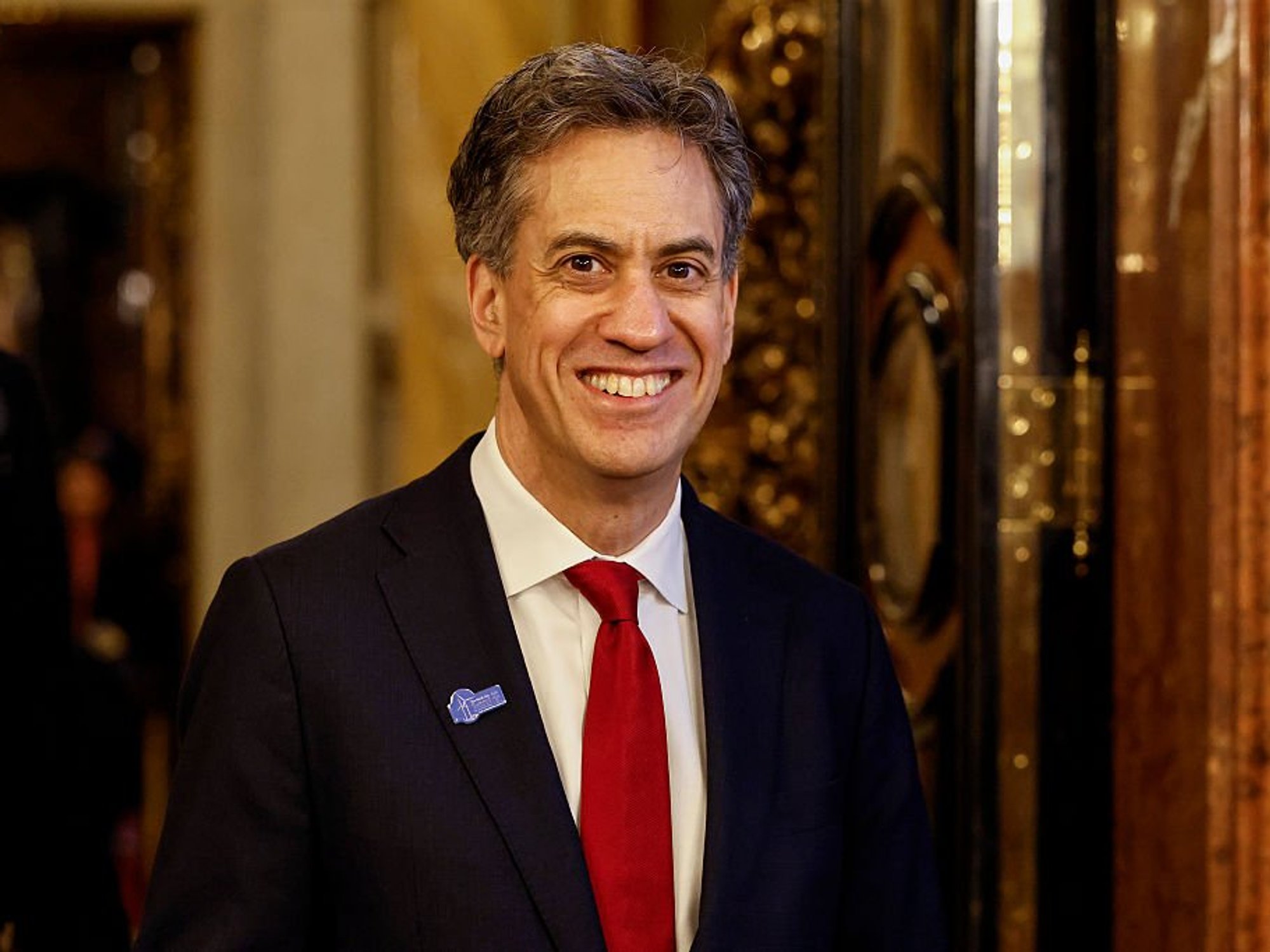Full list of 'brutal' tax rises on the table as Rachel Reeves prepares 'painful' Budget
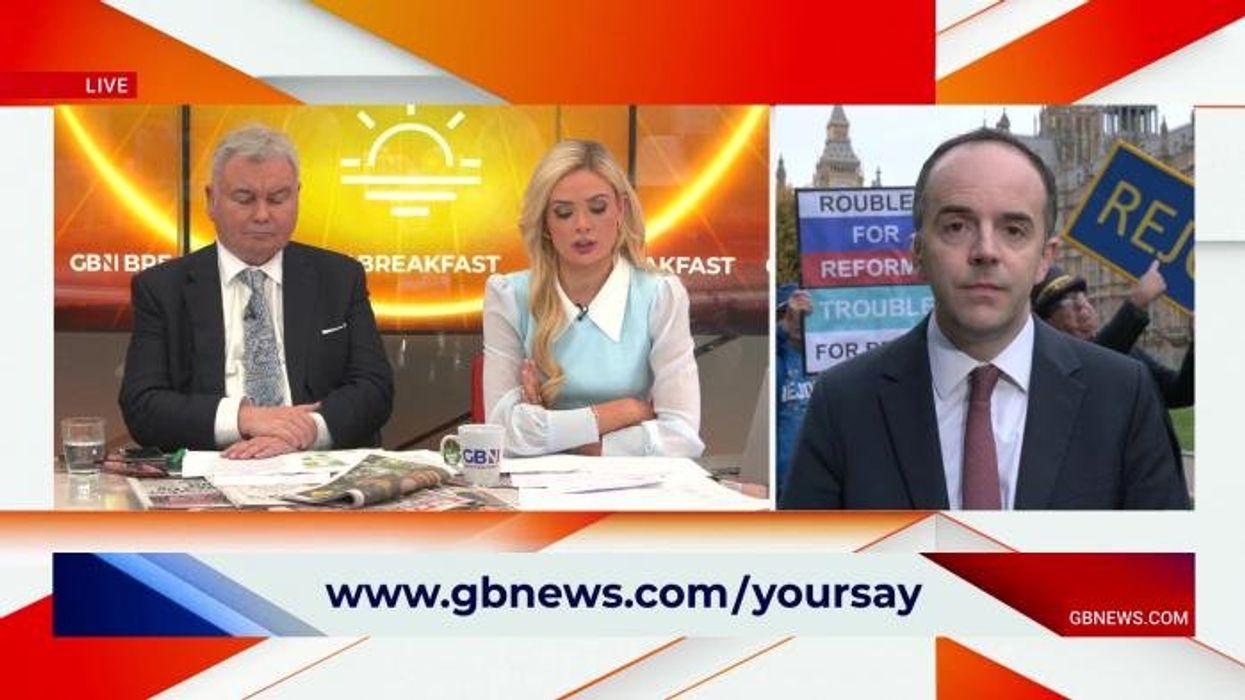
James Murray grilled on Rachel Reeves's Budget amid fears of further tax rises |
GBNEWS

Rachel Reeves has refused to rule out breaking her manifesto pledge not to raise certain taxes
Don't Miss
Most Read
Chancellor Rachel Reeves has warned of deepening economic challenges ahead of the Budget, hinting that tough choices on tax may be unavoidable.
Speaking at Downing Street this morning, Ms Reeves described her commitment to the government’s fiscal rules as "ironclad" but refused to rule out tax rises, saying "each of us must do our bit."
Her comments signal a possible break from Labour's election manifesto and set the stage for a Budget that could see new or higher taxes introduced.
Analysts say income tax changes, while unpopular, could make pension saving more attractive through expanded tax relief - and are urging Ms Reeves to pair any tax rises with policies that boost confidence among savers and investors.
Tom Selby, director of public policy at AJ Bell, warned that Rachel Reeves’ latest speech confirmed the upcoming November 26 Budget is set to be "painful" for both the public and the Labour government.
He said Ms Reeves used her statement to highlight "geopolitical challenges" including Donald Trump’s tariffs, rising defence costs and soaring government borrowing - all setting the stage for "potentially brutal tax rises."
With just over three weeks to go before the Budget, AJ Bell analysts say a range of other tax measures could still be on the table.
Income Tax
Rachel Vahey, head of public policy at AJ Bell, warned that Rachel Reeves may be forced to break her pledge not to raise income tax, National Insurance or VAT as fiscal pressures mount.
"With the OBR expected to downgrade its productivity forecasts again, Ms Reeves might have to do the previously unthinkable and raise income tax," she said. Reports suggest a 1p rise across all bands is being considered, which would see someone earning £35,000 pay around £224 more a year.
TRENDING
Stories
Videos
Your Say
Ms Vahey noted this could "make pension saving more appealing," since higher tax relief would mean a basic-rate taxpayer would only need to contribute £79 to add £100 to their pension, instead of £80 today.
She added that the Chancellor might opt to offset an income tax rise with a matching cut to employee National Insurance - a move that would "shift the burden toward pensioners, landlords and savers," while allowing the government to claim it had upheld its manifesto pledge.
Ms Vahey also said Ms Reeves is likely to extend the tax threshold freeze beyond 2028, warning that "over 8.3 million people now pay higher or additional rate tax, up over 45 per cent since the start of the freeze in 2021."
Mr Selby noted that while Ms Reeves has not yet outlined how she will respond, her remark that "we will all have to contribute" to "build the future of Britain" strongly suggests a possible rise in income tax rates.
He described such a move as the "simplest way" for Ms Reeves to raise the tens of billions needed to meet her "ironclad" fiscal rules, potentially allowing her to deliver the pain now and ease spending closer to the general election.
However, he warned the political fallout from breaking Labour’s manifesto pledge not to raise income tax would be "seismic."
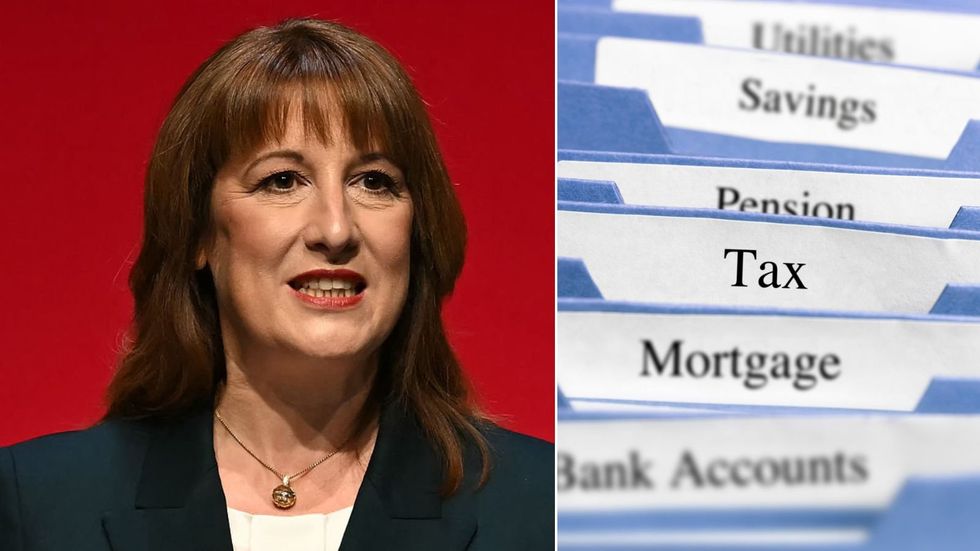
Experts warn breaking Labour’s manifesto pledge not to raise income tax would be "seismic"
|GETTY
National insurance
Danni Hewson, head of financial analysis at AJ Bell, said that while the government has promised not to raise National Insurance contributions, Rachel Reeves "found a way around that pledge" at the last Budget by limiting it to employee contributions only.
"With every potential source of income evidently up for discussion, could Rachel Reeves and her team sell a return to pre-2024 levels of national insurance?"she asked, noting that such a move would be "extremely unpalatable" for a Labour government that has vowed to raise living standards for working people.
Ms Hewson suggested a pill that might be easier to swallow could be a new tax charge on those using limited liability partnerships (LLPs), who are currently taxed as self-employed.
While this wouldn’t raise as much money as a broader NI rise, she said it would target higher earners, or those with the "broadest shoulders," including some doctors, accountants and venture capital funds. However, she warned that this could alienate parts of the medical profession and “have a knock-on effect on the amount of capital available to invest in UK start-ups and scale-ups.”
Ms Hewson added that another group who could be drawn into paying National Insurance is pensioners, who currently pay no NI on either pension income or earnings after reaching state pension age. Given growing debate about the generational wealth gap, she said it "might not be too far a stretch" for the government to consider taxing wealthy retirees or those still in work.
However, she cautioned that after last year’s backlash over cuts to the Winter Fuel Payment for pensioners not on means-tested benefits, "this feels like one fight the government is unlikely to pick."
LATEST DEVELOPMENTS
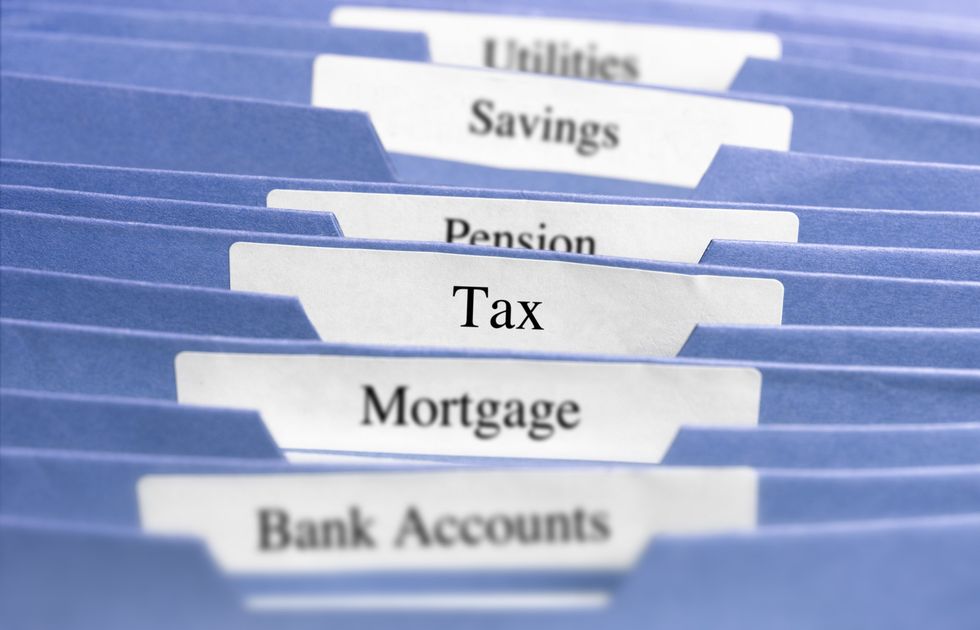
Because sacrifice has many tax advantages, the system has often been "under scrutiny"
| GETTYPensions salary sacrifice
The Chancellor is said to be looking at cutting back the tax breaks workers and employers get when they pay into workplace pensions, a change that could leave the average employee around £210 worse off each year.
The move would focus on 'salary sacrifice' schemes, which allows people to put money into their pension before income tax or National Insurance is deducted from their pay.
Treasury sources say the changes would mainly hit higher earners, but pension experts warn that more than 3 million basic-rate taxpayers could also end up paying more.
Ms Vahey warned that any move to change pension salary sacrifice rules would be highly unpopular with employers. She explained that "thousands of employers currently use pensions salary sacrifice as a way of efficiently paying pension contributions while cutting down on both employer and employee national insurance costs."
Because of these tax advantages, the system has often been "under scrutiny" as the government looks for ways to reduce reliefs and raise revenue.
Ms Vahey said HMRC-commissioned research earlier this year found employers "reacted negatively to all" proposed reforms, warning that removing these benefits would "wipe away the financial advantages of salary sacrifice" and could lead to "lower pension savings and workers’ morale."
She added that any changes should consider the long-term impact on retirement outcomes and should “wait until the Pensions Commission has concluded its work.”
State Pension Reform
Mr Selby said the soaring £150billion cost of the state pension makes it a "tempting target" for a cash-strapped chancellor. He noted that the government could curb spending by scrapping the triple lock or speeding up state pension age rises but warned that both would come with a hefty political price after the backlash over cuts to winter fuel payments.
Mr Selby pointed out that a review of the state pension age, due to close for evidence on October 24, could open the door to bringing forward the planned rise to 68 and potentially higher increases beyond that. However, he said Ms Reeves may be reluctant to "grasp that particular nettle" given the political challenges she already faces.
He added that while the triple lock has been excluded from the review and Prime Minister Keir Starmer has pledged to keep it for the rest of this Parliament, "at some point politicians will need to establish what the policy is aiming to achieve and set a trajectory to, at the very least, remove the 2.5 per cent underpin."
Mansion Tax
Laith Khalaf, head of investment analysis at AJ Bell, said rumours suggest the chancellor may consider taxing high-value properties annually or applying capital gains tax on their sale. He warned that while the wealthiest would be hardest hit, such a move could "create a log jam in the housing ladder" as owners hold onto properties to avoid large bills.
Mr Khalaf said property taxes are highly emotive and usually a "policy of last resort," but with income tax, National Insurance and VAT rises ruled out, they may prove too tempting for the government to ignore

Growing fiscal pressures have revived debate over a possible wealth tax
| GETTYCapital Gains Tax
Mr Khalaf also explained Ms Reeves may have "unfinished business" with capital gains tax (CGT) after raising rates at the last Budget. He suggested she could engage in a more full-blooded attack on asset gains by aligning CGT rates with income tax to raise extra revenue.
Announcing such a move in advance could temporarily boost receipts as investors rush to sell before higher rates apply, he said, though warned that "there is some doubt over whether raising capital gains tax is good for tax revenues in the long term."
Mr Khalaf cautioned that higher CGT could push money into tax-free shelters such as ISAs, gilts and homes, while discouraging entrepreneurship and investment in productive assets - running counter to Reeves’ growth ambitions.
He also noted that CGT currently doesn’t apply on death, meaning higher rates may lead people to hold onto assets longer. "Of course, it’s possible Reeves might choose to close that loophole too," he added, "but after increasing inheritance tax on pensions and farms, that might be a death tax too far."
Wealth Tax
Mr Khalaf said growing fiscal pressures have revived debate over a possible wealth tax, backed by some Labour MPs and supported by over two-fifths of Brits," according to AJ Bell research.
Proposals have included a two per cent levy on wealth above £10million, an idea promoted by former Labour leader Neil Kinnock. While he acknowledged the appeal of targeting "a small group of very wealthy individuals for whom paying a bit more tax won’t mean hardship," Mr Khalaf warned that the "devil lies in the detail."
He explained that valuing assets such as homes, pensions and private businesses is complex, and excluding them would create loopholes and strong incentives to store wealth elsewhere. A wealth tax could also drive high-net-worth individuals overseas, he said, £denying the taxman a feast of blubber."
Mr Khalaf added that fairness concerns persist, as much of the wealth in question has already been subject to income, capital gains or inheritance tax.
"WWhile it would only affect a small group of people," he said, "a wealth tax would likely still be a controversial measure" and could undermine efforts to promote investment and wealth creation. "But perhaps desperate times call for desperate measures."
More From GB News









